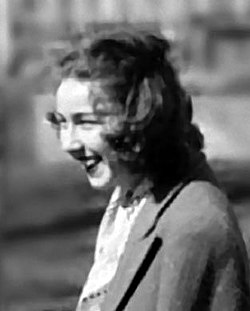Flannery O'Connor Quote
The fiction writer is an observer, first, last, and always, but he cannot be an adequate observer unless he is free from uncertainty about what he sees. Those who have no absolute values cannot let the relative remain merely relative; they are always raising it to the level of the absolute. The Catholic fiction writer is entirely free to observe. He feels no call to take on the duties of God or to create a new universe. He feels perfectly free to look at the one we already have and to show exactly what he sees.
Flannery O'Connor
The fiction writer is an observer, first, last, and always, but he cannot be an adequate observer unless he is free from uncertainty about what he sees. Those who have no absolute values cannot let the relative remain merely relative; they are always raising it to the level of the absolute. The Catholic fiction writer is entirely free to observe. He feels no call to take on the duties of God or to create a new universe. He feels perfectly free to look at the one we already have and to show exactly what he sees.
Related Quotes
About Flannery O'Connor
Mary Flannery O'Connor (March 25, 1925 – August 3, 1964) was an American novelist, short story writer, and essayist. She wrote two novels and 31 short stories, as well as a number of reviews and commentaries.
O'Connor was a Southern writer who often wrote in a sardonic Southern Gothic style. She relied heavily on regional settings and grotesque characters, often in violent situations. In her writing, an unsentimental acceptance or rejection of the limitations, imperfections or differences of these characters (whether attributed to disability, race, crime, religion or sanity) typically underpins the drama.
O'Connor's writing often reflects her Catholic faith, and frequently examines questions of morality and ethics. Her posthumously compiled Complete Stories won the 1972 U.S. National Book Award for Fiction and has been the subject of enduring praise.
O'Connor was a Southern writer who often wrote in a sardonic Southern Gothic style. She relied heavily on regional settings and grotesque characters, often in violent situations. In her writing, an unsentimental acceptance or rejection of the limitations, imperfections or differences of these characters (whether attributed to disability, race, crime, religion or sanity) typically underpins the drama.
O'Connor's writing often reflects her Catholic faith, and frequently examines questions of morality and ethics. Her posthumously compiled Complete Stories won the 1972 U.S. National Book Award for Fiction and has been the subject of enduring praise.
